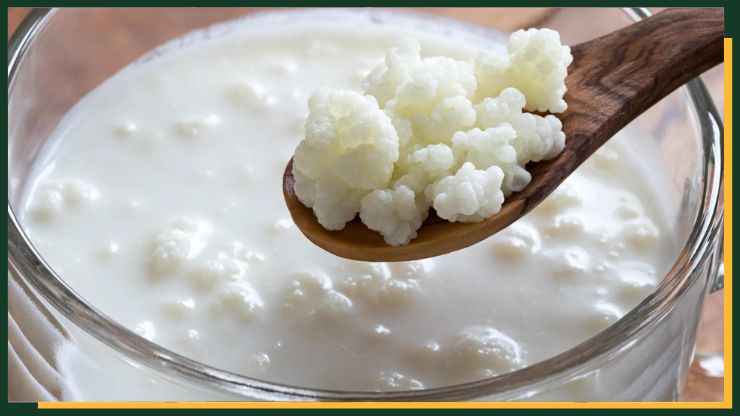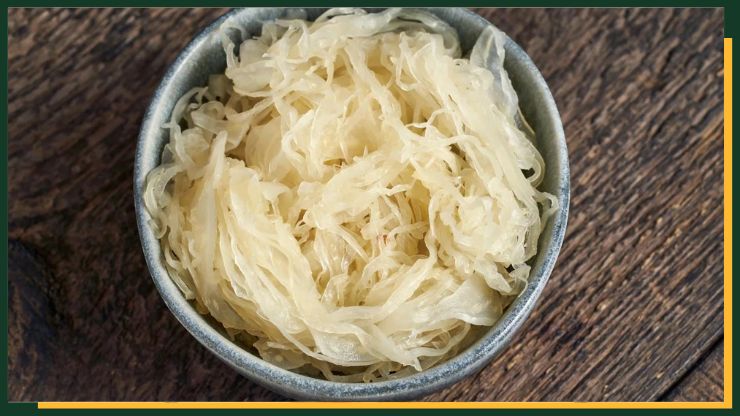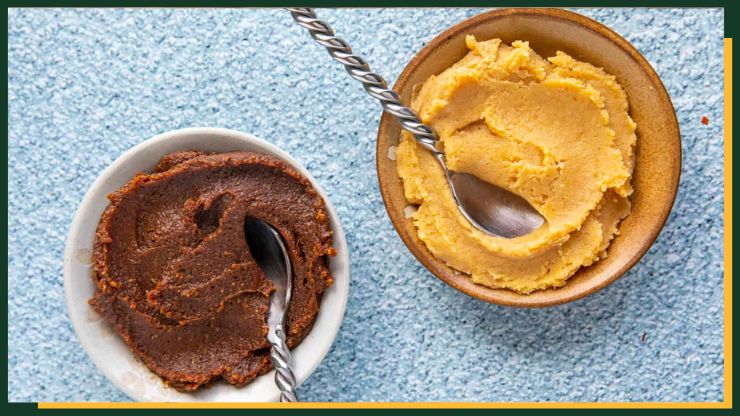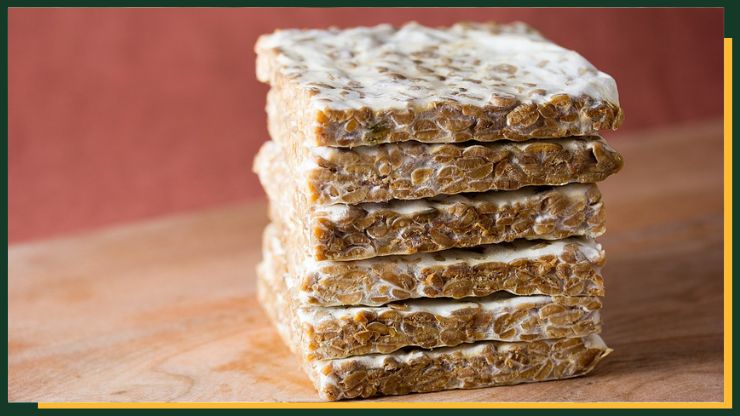Fermented Foods for Improved Digestion, with their rich history and potent impact on digestive health, have increasingly garnered attention in recent years.
This culinary tradition, dating back thousands of years, involves the transformation of ingredients through the activity of microorganisms like bacteria and yeast. The outcome is not just a savory delight but also a potent elixir for digestive well-being.
The link between fermented foods and digestion is undeniable. The probiotics abundant in these foods, such as yogurt and kimchi, play a pivotal role in maintaining a balanced gut microbiome.
Additionally, the fermentation process enhances the bioavailability of essential nutrients and can alleviate digestive discomfort.
As more research unfolds the intricate relationship between fermented foods and our well-being, this outline will explore the science, benefits, and practical aspects of incorporating these transformative edibles into your daily diet, promoting digestive harmony and overall health.
Table of Contents
ToggleBenefits of Fermented Foods for Digestion
Probiotics and Gut Health:
a. Introduction to Probiotics: Fermented foods are rich sources of live beneficial bacteria, known as probiotics. These probiotics, including Lactobacillus and Bifidobacterium strains, help balance the gut microbiome.
b. Gut Microbiome Balance: Probiotics in fermented foods promote a diverse and balanced gut microbiome, which is crucial for optimal digestion, nutrient absorption, and immune system support.
c. Improved Digestive Function: Probiotics assist in breaking down complex food molecules and aid in the absorption of nutrients, helping to prevent digestive disorders like irritable bowel syndrome (IBS).
Also, Read – Pineapple Turmeric Sauerkraut Recipe
Enhanced Nutrient Absorption
a. Nutrient Breakdown: Fermentation partially digests food components, breaking down compounds that might be difficult for the body to absorb otherwise.
b. Increased Bioavailability: The breakdown of nutrients during fermentation makes them more bioavailable, improving the body’s ability to absorb essential vitamins and minerals, such as B vitamins and minerals like iron and magnesium.
Reduced Digestive Discomfort
a. Reduced Bloating and Gas: Fermented foods can decrease bloating and excessive gas production by aiding in the digestion of complex carbohydrates.
b. IBS Symptom Alleviation: The probiotics and other bioactive compounds in fermented foods may help alleviate symptoms of irritable bowel syndrome (IBS), such as abdominal pain and irregular bowel movements.
Immune System Support
a. Connection to Immunity: A significant portion of the body’s immune system is located in the gut. Probiotics in fermented foods can help modulate the immune response and strengthen the body’s defenses against pathogens.
b. Reduced Inflammation: A balanced gut microbiome promoted by fermented foods can help reduce chronic inflammation, which is linked to various digestive disorders.
Potential Mental Health Benefits
Gut-Brain Connection: Emerging research suggests that the gut-brain connection plays a role in mental health. Fermented foods may contribute to improved mood and reduced symptoms of anxiety and depression through the gut-brain axis.
Also, Read – Sourdough English Muffins Recipe
Fermented Foods for Improved Digestion
Kefir

Kefir is a fermented dairy drink packed with diverse probiotics that benefit gut health. It contains a range of beneficial bacteria and yeasts, promoting a balanced gut microbiome.
Kefir can help with digestion, improve lactose tolerance, and enhance the immune system. Its thin consistency and broad spectrum of probiotic strains make it a valuable addition to your diet for overall well-being.
Don't just scroll, subscribe!
BuzzTrail's unique web-stories are the cure for boredom you've been waiting for.
Sauerkraut

Sauerkraut is a fermented cabbage dish with lactic acid bacteria that support digestion and gut health. This tangy, probiotic-rich food aids in nutrient absorption and can reduce inflammation in the digestive tract.
The live cultures in sauerkraut also contribute to a healthier gut lining. Regular consumption of sauerkraut can help maintain a balanced gut microbiome, potentially alleviating digestive discomfort and supporting overall well-being.
Kimchi

Kimchi is a spicy, fermented Korean dish primarily made from cabbage and other vegetables. Packed with probiotics, vitamins, and fiber, it offers numerous benefits for digestion and overall health. The live beneficial bacteria in kimchi help maintain a balanced gut microbiome, potentially reducing digestive issues and promoting regular bowel movements.
Moreover, its rich nutrient content contributes to a stronger immune system and overall well-being. The spicy kick in kimchi comes from chili peppers, which can boost metabolism and aid digestion. This flavorful condiment adds a burst of taste to various dishes and is an excellent way to incorporate probiotics into your diet while enjoying its unique and vibrant flavors.
Kombucha

Kombucha is a fermented tea beverage made with a symbiotic culture of bacteria and yeast (SCOBY). This fizzy drink is a natural source of probiotics and various beneficial compounds. It supports gut health by introducing live cultures that promote a balanced gut microbiome, potentially alleviating digestive discomfort and improving nutrient absorption.
Kombucha is also known for its potential to boost the immune system and provide antioxidants that combat inflammation. Its slightly tangy taste, combined with a touch of sweetness, makes it a popular and refreshing choice for those looking to enjoy the benefits of probiotics while satisfying their taste buds.
However, it’s essential to consume it in moderation due to its natural fermentation process, which can result in trace amounts of alcohol.
Miso

Miso is a traditional Japanese seasoning made from fermented soybeans or other grains like rice or barley. It’s a concentrated source of probiotics and offers various benefits for digestion and overall health.
Miso helps maintain a balanced gut microbiome, which can improve digestion and nutrient absorption. Additionally, it’s rich in essential nutrients like vitamins (B vitamins and vitamin K), minerals (iron, zinc, and manganese), and antioxidants, contributing to overall well-being.
Miso’s unique umami flavor adds depth to soups, dressings, and marinades, making it a versatile and tasty way to incorporate probiotics into your diet while enjoying its rich, savory taste.
Tempeh

Tempeh is a plant-based protein source made from fermented soybeans. Unlike some other soy products, tempeh is easier to digest due to the fermentation process, which breaks down anti-nutrients and enhances nutrient absorption. It’s a rich source of protein, fiber, vitamins (such as B vitamins), and minerals (like iron and calcium). Tempeh is also packed with probiotics, which support gut health and can improve digestion.
The fermentation process gives tempeh a unique nutty flavor and firm texture, making it a versatile ingredient for various dishes like stir-fries, sandwiches, and salads. It’s an excellent choice for those seeking plant-based protein and the benefits of probiotics while enjoying a delicious and nutritious addition to their meals.
Pickles (fermented in brine, not vinegar)

Pickles fermented in brine, as opposed to those made with vinegar, are a type of lacto-fermented food. These pickles offer a host of digestive benefits and contribute to overall well-being. During the fermentation process, beneficial bacteria, such as Lactobacillus, convert sugars into lactic acid, creating an acidic environment that preserves the pickles and promotes the growth of probiotics. This not only enhances their shelf life but also enriches them with live cultures that can positively influence the gut microbiome.
Consuming these probiotic-rich pickles can help improve digestion, support nutrient absorption, and alleviate digestive discomfort. They make for a tangy, crunchy, and nutritious addition to your diet, providing a flavorful way to enhance your gut health while enjoying their characteristic taste and texture.
Yogurt

Yogurt is a fermented dairy product packed with probiotics, including Lactobacillus and Bifidobacterium, which are beneficial bacteria that promote gut health. These probiotics aid digestion by maintaining a balanced gut microbiome, potentially reducing symptoms of lactose intolerance and supporting regular bowel movements.
Yogurt is also a source of essential nutrients like calcium, protein, and vitamins, making it a nutritious addition to your diet. Its creamy texture and versatile nature make it a delicious and easy way to incorporate probiotics into various meals, snacks, and smoothies. Regular consumption of yogurt can contribute to improved digestive health and overall well-being.
Conclusion
In conclusion, fermented foods are a nutritional treasure trove for promoting digestion and overall well-being. Their probiotics, nutrient-enhancing properties, and potential to alleviate digestive discomfort make them essential additions to a healthy diet.
As research continues to unravel the multifaceted benefits of fermented foods, embracing them can be a flavorful and natural way to boost gut health, enhance nutrient absorption, and bolster the immune system. By making fermented foods a regular part of your diet, you can savor the taste of improved digestion and the potential for better overall health.
FAQs
What are fermented foods, and how do they improve digestion?
What are fermented foods, and how do they improve digestion?
Fermented foods are those that have undergone a natural process of microbial transformation. They improve digestion by providing probiotics, which promote a balanced gut microbiome, aid in nutrient absorption, and reduce digestive discomfort.
What are probiotics, and why are they important for digestion?
What are probiotics, and why are they important for digestion?
Probiotics are live beneficial bacteria that support a healthy gut microbiome. They help maintain digestive balance, break down complex foods, and assist in nutrient absorption, contributing to overall digestive health.
Which fermented foods are best for digestion?
Which fermented foods are best for digestion?
Excellent options include yogurt, kefir, sauerkraut, kimchi, pickles, sourdough bread, and miso. These foods contain a variety of probiotic strains and offer different taste profiles.

